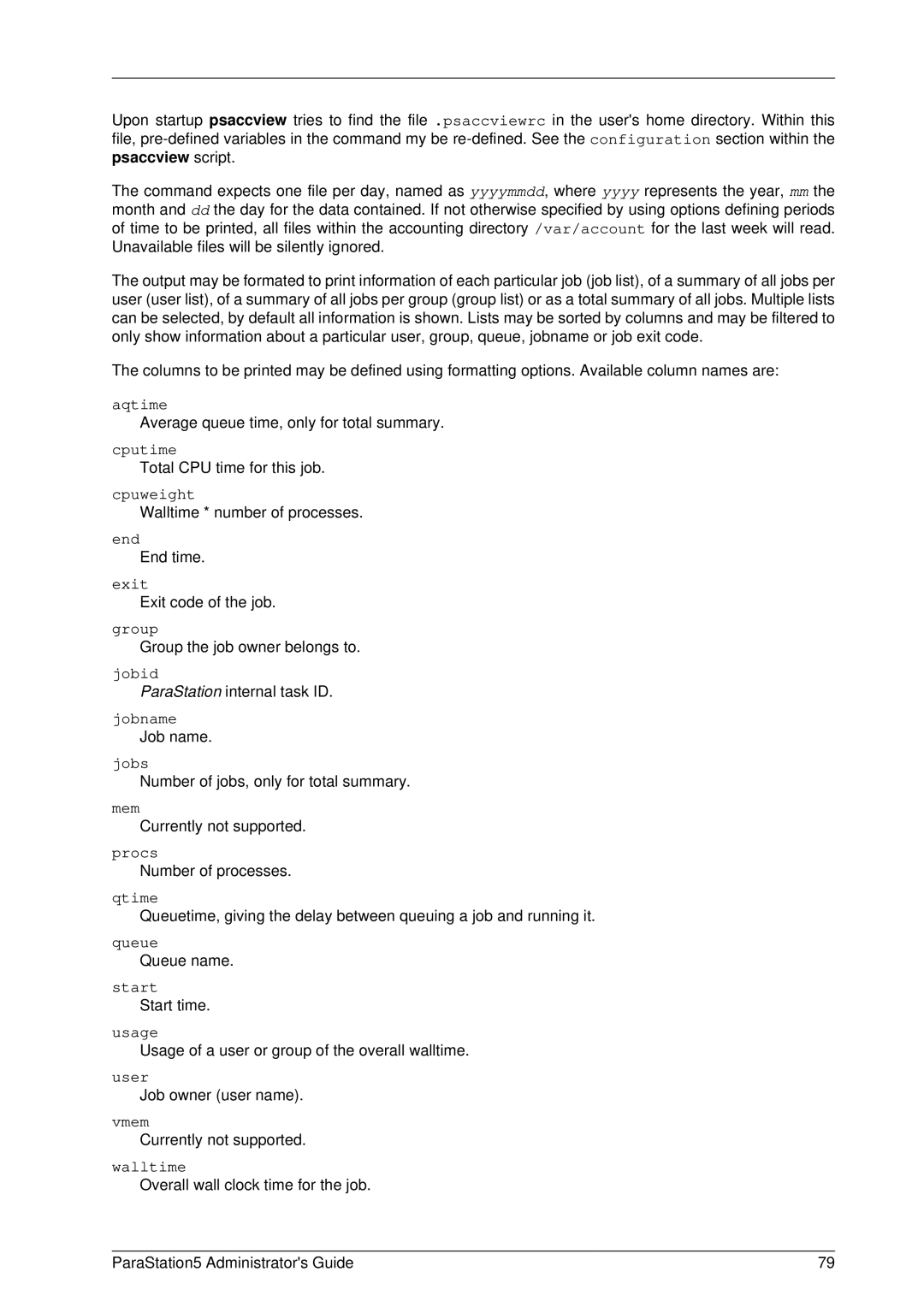
Upon startup psaccview tries to find the file .psaccviewrc in the user's home directory. Within this file,
The command expects one file per day, named as yyyymmdd, where yyyy represents the year, mm the month and dd the day for the data contained. If not otherwise specified by using options defining periods of time to be printed, all files within the accounting directory /var/account for the last week will read. Unavailable files will be silently ignored.
The output may be formated to print information of each particular job (job list), of a summary of all jobs per user (user list), of a summary of all jobs per group (group list) or as a total summary of all jobs. Multiple lists can be selected, by default all information is shown. Lists may be sorted by columns and may be filtered to only show information about a particular user, group, queue, jobname or job exit code.
The columns to be printed may be defined using formatting options. Available column names are:
aqtime
Average queue time, only for total summary.
cputime
Total CPU time for this job.
cpuweight
Walltime * number of processes.
end
End time.
exit
Exit code of the job.
group
Group the job owner belongs to.
jobid
ParaStation internal task ID.
jobname Job name.
jobs
Number of jobs, only for total summary.
mem
Currently not supported.
procs
Number of processes.
qtime
Queuetime, giving the delay between queuing a job and running it.
queue
Queue name.
start Start time.
usage
Usage of a user or group of the overall walltime.
user
Job owner (user name).
vmem
Currently not supported.
walltime
Overall wall clock time for the job.
ParaStation5 Administrator's Guide | 79 |
